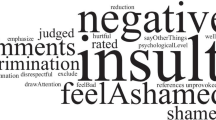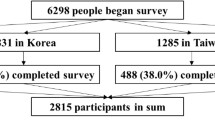Abstract
This study explored the impact of victim and perpetrator alcohol consumption on police officers' evaluations of an alleged sexual assault and their reported likelihood of charging the perpetrator. Two hundred and twelve police officers were presented with a vignette depicting an acquaintance rape in which the beverage consumption (beer, cola) of both the victim and perpetrator was systematically varied. Results indicated that the officers' perceptions of the complainant's intoxication level, as well as the gender of the officer, influenced officers' evaluations of the alleged sexual assault. The more intoxicated the complainant was perceived to be, the more negatively she was viewed. Female police officers evaluated the victim more favorably than male officers. The only factors related to the officers' likelihood of charging the perpetrator, however, involved their assessment of the complainant's credibility and their perception of the likelihood that the perpetrator would be found guilty in a court of law.
Similar content being viewed by others
REFERENCES
Abbey, A., & Harnish, R. J. (1995). Perception of sexual intent: The role of gender, alcohol consumption, and rape supportive attitudes. Sex Roles, 32, 297–313.
Abbey, A., Ross, L. T., McDuffie, D., & McAuslan, P. (1996). Alcohol, misperception, and sexual assault: How and why are they linked? In D. M. Buss and N. M. Malamuth (Eds.), Sex power conflict: Evolutionary and feminist perspectives. New York: Oxford University Press.
Aramburu, B., & Leigh, B. C. (1991). For better or worse: Attributions about drunken aggression toward male and female victims. Violence and Victims, 6, 31–41.
Aronson, E., Ellsworth, P. C., Carlsmith, J. M., & Gonzales, M. H. (1990). Methods of research in social psychology (2nd ed.). New York: McGraw-Hill.
Corcoran, K. L., & Thomas, L. R. (1991). The influence of observed alcohol consumption on perceptions of initiation of sexual activity in a college dating situation. Journal of Applied Social Psychology, 21, 500–507.
Cohen, J., & Cohen, P. (1983). Applied multivariate regression/correlation analysis for the behavioral sciences (2nd ed.). Hillsdale, NJ: Erlbaum.
Critchlow, B. (1983). Blaming the booze: The attribution of responsibility for drunken behavior. Personality and Social Psychology Bulletin, 9, 451–473.
Critchlow, B. (1985). The blame in the bottle: Attributions about drunken behavior. Personality and Social Psychology Bulletin, 11, 258–276.
Frazier, P. A., & Haney, B. (1996). Sexual assault cases in the legal system: Police prosecutor and victim perspectives. Law and Human Behaviour, 20, 607–628.
Frintner, M. P., & Rubinson, L. (1993). Acquaintance rape: The influence of alcohol, fraternity membership, and sports team membership. Journal of Sex Education and Therapy, 19, 272–284.
Gomberg, E. S. (1981). Women, sex roles, and alcohol problems. Professional Psychology, 12, 146–155.
George, W. H., Cue, K. L., Lopez, P. A., Crowe, L. C., & Norris, J. (1995). Self-reported alcohol expectancies and postdrinking sexual inferences about women. Journal of Applied Social Psychology, 25, 164–186.
George, W. H., Gournic, S. J., & McAfee, M. P. (1988). Perceptions of postdrinking female sexuality: Effects of gender, beverage choice, and drink payment. Journal of Applied Social Psychology, 18, 1295–1317.
Gliksman, L., Smythe, C., & Engs, R. C. (1992). Responders vs. non-responders to a mail survey: Are they different? Canadian Journal of Program Evaluation, 7, 131–137.
Goyder, J. (1985). Face-to-face interviews and mailed questionnaire: The net difference in response rate. Public Opinion Quarterly, 49, 234–252.
Hammock, G. S., & Richardson, D. R. (1997). Perceptions of rape: The influence of closeness of relationship, intoxication and sex of participant. Violence and Victims, 12, 237–246.
Hoyle, C. (1998). Negotiating domestic violence: Police, criminal justice, and victims. Oxford: Clarendon Press.
Kerstetter, W. A. (1990). Gateway to justice: Police and prosecutors response to sexual assault. Journal of Criminal Law and Criminology, 81, 267–313.
Koss, M. P., Gidycz, C. A., & Wisniewski, N. (1987). The scope of rape: Incidence and prevalence of sexual aggression and victimization in a national sample of higher education students. Journal of Consulting and Clinical Psychology, 55, 162–170.
LaFree, G. D. (1981). Official reactions to social problems: Police decision in sexual assault cases. Social Problems, 28, 582–594.
LaFree, G. D., Reskin, B. F., & Visher, C. A. (1985). Jurors' response to victims' behaviour and legal issues in sexual assault trials. Social Problems, 32, 389–407.
Landrine, H., Bardwell, S., & Dean, T. (1988). Gender expectations for alcohol use: A study of the significance of the masculine role. Sex Roles, 19, 703–712.
Leigh, B. A. (1995). Athing so fallen, and so vile: Images of drinking and sexuality in women. Contempory Drug Problems, 22, 415–434.
Leigh, B. C., & Aramburu, B. (1994). Responsibility attributions for drunken behavior: The role of expectancy violation. Journal of Applied Social Psychology, 24, 115–135.
Leigh, B. C., Aramburu, B., & Norris, J. (1992). The morning after: Gender differences in attributions about alcohol-related sexual encounters. Journal of Applied Social Psychology, 22, 343–357.
Lonsway, K. A., & Fitzgerald, L. F. (1994). Rape myths: In review. Psychology of Women Quarterly, 18, 133–164.
Lopez, P. (1992). He said... she said... an overview of date rape from commission through prosecution through verdict. Criminal Justice Journal, 13, 275–302.
Muehlenhard, C. L., & Linton, M. A. (1987). Date rape and sexual aggression in dating situations: Incidence and risk factors. Journal of Counseling Psychology, 34, 186–196.
Norris, J., & Cubbins, L. A. (1992). Dating, drinking and rape: Effects of victim's and assailant's alcohol consumption on judgments of their behaviour and traits. Psychology of Women Quarterly, 16, 179–191.
Queensland Police Service. (1997). Annual statistical review 1996–97. Brisbane: Queensland Police Service.
Ray, O. S. (1983). Drugs, society, and human behavior. St. Louis, MO: Mosby.
Richardson, D. C, & Campbell, J. L. (1980). Alcohol and wife abuse: The effect of alcohol on attributions of blame for wife abuse. Personality and Social Psychology Bulletin, 6, 51–56.
Richardson, D., & Campbell, J. L. (1982). Alcohol and rape: The effect of alcohol on attributions of blame for rape. Personality and Social Psychology Bulletin, 8, 468–476.
Rose, V. M., & Randall, S. C. (1982). The impact of investigator perceptions of victim legitimacy on the processing of rape/sexual assault cases. Symbolic Interaction, 5, 23–36.
Schuller, R. A., & Wall, A. M. (1998). The effects of defendant and complainant intoxication on mock jurors' judgements of sexual assault. Psychology of Women Quarterly, 22, 555–573.
Stewart, A. L., & Maddren, K. (1997). Police officers' judgement of blame in family violence: The impact of gender and alcohol. Sex Roles, 37, 921–934.
Stormo, K. J., Lang, A. R., & Stritzke, W. G. K. (1997). Attributions about acquaintance rape: The role of alcohol and individual differences. Journal of Applied Social Psychology, 27, 279–305.
Testa, M., & Parks, K. A. (1996). The role of women's alcohol consumption in sexual victimization. Aggression and Violent Behavior, 1, 217–234.
Wall, A. M., & Schuller, R. A. (2000). Sexual assault and defendant/victim intoxication: Jurors' perceptions of guilt. Journal of Applied Social Psychology, 30, 253–274.
Wild. T. C., Graham, K., & Rehm, J. (1998). Blame and punishment for intoxicated aggression: When is the perpetrator culpable? Addiction, 93, 677–687.
Wilsnack, S. C. (1984). Drinking, sexuality, and sexual dysfunction in women. In S. C. Wilsnack & L. J. Beckman (Eds.), Alcohol problems in women. New York: Guilford Press.
Author information
Authors and Affiliations
About this article
Cite this article
Schuller, R.A., Stewart, A. Police Responses to Sexual Assault Complaints: The Role of Perpetrator/Complainant Intoxication. Law Hum Behav 24, 535–551 (2000). https://doi.org/10.1023/A:1005519028528
Issue Date:
DOI: https://doi.org/10.1023/A:1005519028528




